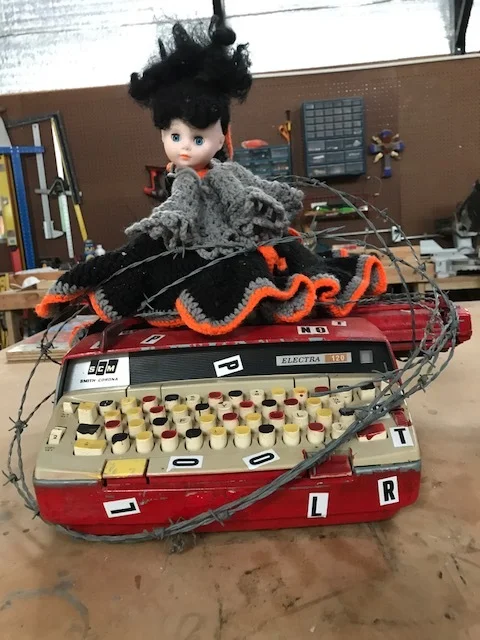The Romanian "revolution," McPherson, Ascher/Straus, Radio Free Europe: a Mystery
/McPherson & Company is an independent publisher that issues remarkable books of fiction at a snail's pace. In an unusual twist of the turtle and the hare fable, in which the snail stands for the turtle, McPherson novels connect with the future faster than novels not yet written. In 1988, McPherson released "The Other Planet," a novel by Ascher/Straus, written collaboratively by Sheila Ascher and Dennis Straus, two dyed-in-the wool New Yorkers. The novel takes place in the idea-rich brain of a female protagonist with a Romanian last name. Her brain is so rich the ideas have to be divided between a number of characters, some of whom also have Romanian last names. These ideas ricochet all over the late 1950s, early 60s, between Long Island and Greenwich Village. The writing is deliberately color-field pointilist. For example: "As summer advanced to the point where a discerning eye could see a scorched orange in the green tunnels, Valeria went to more parties than there were days." One of the bearers of this bright prose is Humberto Villanescu, a mephistophelian character that might carry a plot if Ascher/Straus meant to have one.
Ok, now flash forward to the 2017 Brooklyn Book Fair. The publisher, Bruce McPherson, an imposing and serious man, is peddling the novels he has overseen over the decades. He has an urgent message for me. It appears, he says, that the Ascher/Straus novel published in 1988 has sparked the Romanian "revolution" of 1989. A reporter from Radio Free Europe broadcasting under the pseudonym Liviu Floda, had interviewed the authors just before the bloody events of December 1989 when the Romanian dictator Nicolae Ceausescu and his wife Elena, were executed by firing squad in the wake of what some called a "revolution," and others, more accurately, a coup d'etat. The publisher of McPherson & Company wants me to read this novel because the RFE interview had surfaced (in 2017!) and an urgent discussion is going on as to the role of this novel in the murky uprising that ended Soviet dominion over Eastern Europe.
In the weeks following the Brooklyn Book Fair Mr. McPherson sent me transcripts of the interview which consisted mostly of the authors' astonishment at the unlikely connection. The Romanian events of December 1989 are full of many mysteries, but most of them are directly connected to things like assassins, money, and eminences gris-es, and only one, in my experience, to literature. Nonetheless, I read "The Other Planet" twice, in an effort to discern if there was anything in it that might have sparked a disturbance, leave alone a "revolution." Nothing, zilch, nada.
It would be easy to dismiss the matter as the sort of paranoid seed that sprouts more than occasionally in the world of fictioneers and their enablers, but McPherson & Company are mysterious publishers. In 2010, they published "Lord of Misrule," a novel by Jaimy Gordon that won the National Book Award. "Lord of Misrule" was a novel that Jaimy Gordon began and abandoned decades before. She had submitted it to McPherson at least a decade before the end of the 20th century. Mr. McPherson never let off reminding Ms. Gordon about it until the exasperated writer returned to the text and wrote what turned out to be a superb work of fiction that won the highest literary honor.
So, to recapitulate: McPherson works in decades with print works that look like incunabuli in the internet age. "Another Planet" is a mystery that eludes me, but there are weirder things. I propose others give it a go. I might have missed something.













